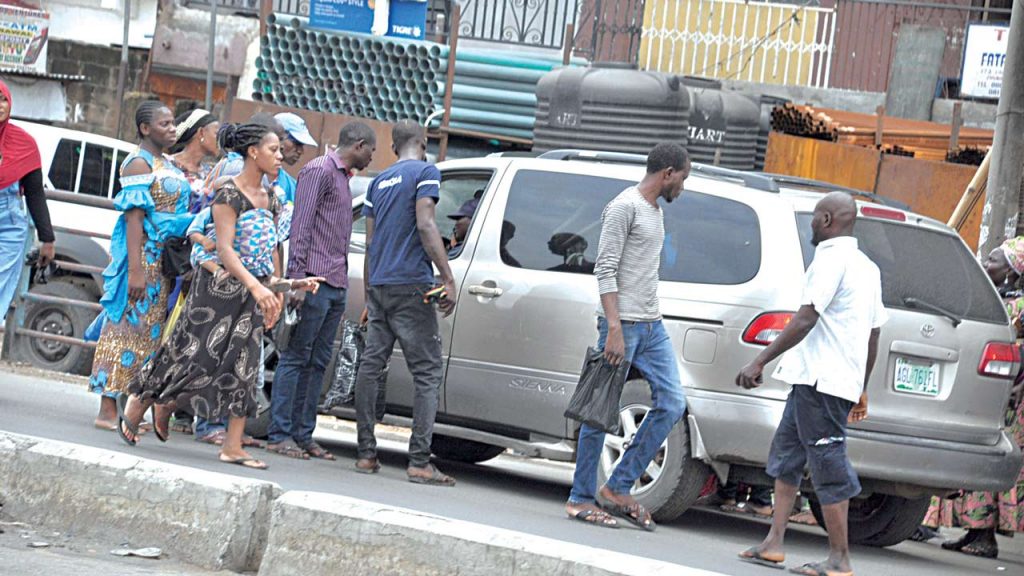
April 25 2020 | Radio Biafra
The doggedness of the Nigeria Centre for Disease Control (NCDC), the Presidential Task Force for the Control of Coronavirus (COVID-19) and the state governments in sensitising Nigerians about the novel virus presently ravaging the world has paid off handsomely. Employing the various channels of communication open to them, they have taken the message of Coronavirus and how to avoid contracting it to the nooks and crannies of the country. Today, even little children know there is a killer disease in town. And with 981 confirmed cases, 197 recoveries and 31 deaths, as at 2:00pm yesterday, Nigerians know that it is a disease to be feared. The global statistics of 2,733,503 confirmed cases, 749,000 recoveries and 192,000 deaths is even scary.
But some Nigerians live as if everything is alright. They care less about the precarious situation of the country, nay the world, and flagrantly defy the government’s directive to citizens to stay in their homes as part of the aggressive measures advised by the World Health Organisation (WHO) to control the spread of the pandemic. But they have a reason for doing so.
“I am close to leaving you for another man since you cannot take care of our only child and me. You are not the only man who no longer goes to work, but you seem like the only man who cannot sustain his family. I had to buy noodles on debt from a nearby food store so our child could eat last night.”
That was an open threat from a housewife to her husband to the consternation of their neighbours in a compound at Isolo area of Lagos State last Wednesday. Her husband kept mute throughout the embarrassing threat cum lamentation by his wife. But next day, he took to the road despite the lockdown to make ends meet for his family.
Later in a chat with The Guardian, the middle-aged man, who preferred anonymity, explained: “I have spent all my savings to sustain my family. As it is now, if I don’t go out there to source for money, my family will not survive each day. The company I work for is actually closed and we are not paid for being at home. So, I drive my brother’s car out to Lekki area everyday to do menial jobs for people just to get daily income for food and other day-to-day needs.”
He further explained that the family had just relocated to the two-room apartment and had barely spent a week before the lockdown began. “I spent most of my savings on the new rent and had just a little left. So lockdown or no lockdown, I will have to find my way out on a daily basis if I don’t want the kind of scene my wife made yesterday to repeat itself,” he added.
At Amu Plank market, Ladipo Spare Parts market and Shoe Materials market, all located in Mushin area of Lagos, traders were unable to display their wares but were seen hanging around their shops waiting for customers.
A trader at the Ladipo spare parts market, Mr. Onyeka Eze, said he had to disregard the lockdown order after running out of money to sustain his family. “How will I stay home for four weeks without a means of survival? How will I feed my family? The government claimed to have shared food items, which I didn’t get anyway, but how will the little food items they shared sustain a family for a whole month. Being the head of my family, my wife and children depend solely on me for their daily needs. The little savings I had have been exhausted; I can’t just sit at home and watch my family starve. I would rather leave home and come here to look for customers that would patronise my business than to stay at home and watch my family starve. It’s only God that can help this country,” he said.
A trader at the Amu Plank market, Mrs Taiwo Esther, said: “I find it difficult sitting at home especially when I have nothing doing and there is no power supply for me to keep myself busy. The annoying thing is that the electricity distribution company still brought the monthly bill for me to pay. How do I pay when my place of income has been closed down? I keep spending the little I have saved and there is no new income coming in. So, the best thing is to come out and hope that customers will come around.”
A mechanic in Ilasamaja area of the state, Olawale Akanni, also said that the need to fend for his family forced him out of his home. His words: “Telling people to stay at home without palliatives is unfair. I have exhausted all the money in my account in the last two weeks and I still have to fend for my family. My wife and children are hungry. Will I watch them die of hunger? So, I have to go out and search for what they will eat.
“I’m not saying it is good to go against the law but how would I feed my family if I don’t go out to work? The government promised us palliatives during the lockdown; I even heard they promised each citizen some amount of money. I’m not sure how true it is but the palliatives they promised we see none. So, why won’t I go out amid the lockdown?”
On his part, Odelaja Adewale, an engineer, said he has a lot of dependents and needed to source for money to attend to their needs. “I was forced to come out before I finish spending the money I have in my account. I’m not married yet but lots of people are looking up to me.
“Most of my customers are even complaining. Some of those that gave me jobs to do before the lockdown want me to render the service. So, in order not to lose my customers and become jobless when the lockdown is over, I had to attend to them. What will I do if I lose my customers during the lockdown? Will I start searching for new customers after the lockdown?” He queried.
Findings showed that claims to hunger and hard times by those defying the lockdown were not mere tales. Mariam Afolabi, whom The Guardian accosted along with her younger sister at a fuel station in Ajao Estate area of the state, said they were returning from a charity mission at a friend’s house.
“My friend called and said she didn’t have a dime with her, and there was no food for herself and the children. She is a single mother and I had to take some food items to her at Ilasa. I also gave her some money in cash. I couldn’t just stay back without helping out. But I didn’t go into her apartment because I needed to maintain social distancing. I had my face mask on, handed her the food items and cash and drove off,” she said.
When asked how she successfully drove through police checkpoints on the road, Afolabi said: “Nigerian Police are very predictable. I simply told them I needed to go and give a friend some money to sustain the family, and they just requested for their own palliative and allowed me to pass.”
A commercial bus driver, who operates along the Oshodi-Mushin axis, also said police operatives enforcing the lockdown allow him passage once he ‘settles’ them. “I only need to settle the police at the road block and I will be allowed to move. They don’t disturb my movement as long as I do the needful.
“The government wants us to remain home but what are their plans for us the citizens? I have got mouths to feed and bills to pay. How do I go about it? I have just been spending the little I have but nothing is coming in for me. I’m not happy about this whole situation.
“Although I was opportune to receive some food items distributed by the government, that won’t be enough to sustain my wife and five children for a whole month,” he said.
The situation appears similar in other parts of the country that are on lockdown as Lagos. From Imo to Abia, Ekiti, Anambra and Rivers states, residents who breach the lockdown order also adduce hard times and hunger as their reasons. The following reports tell the stories alongside other issues on COVID-19 in the states.
Source: The Guardian NG
Published by:
Chibuike John Nebeokike
For: Radio Biafra Media






























